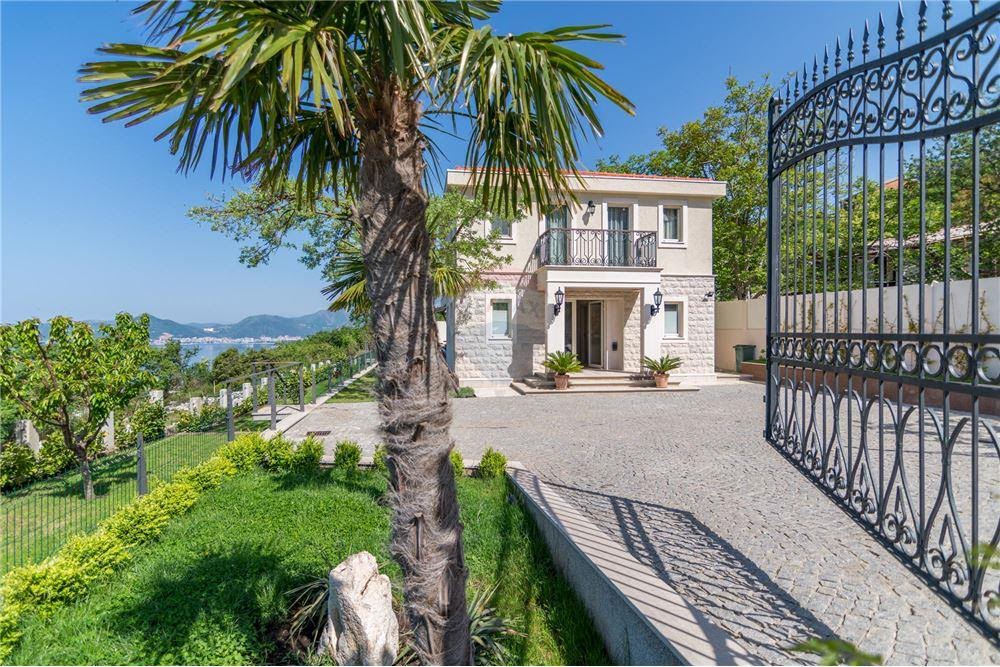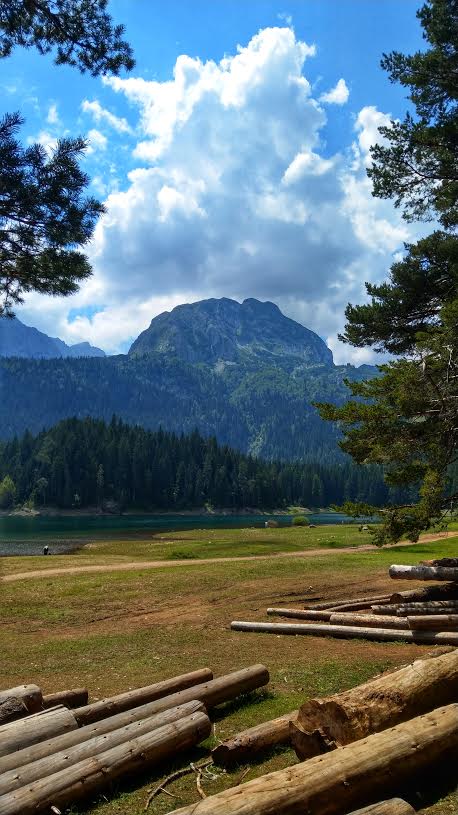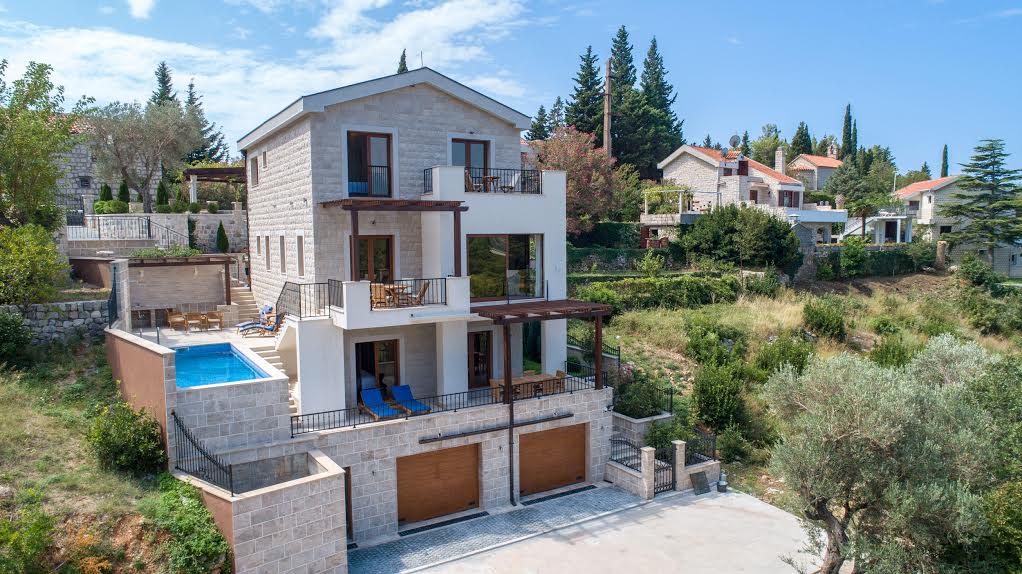Lifestyle
During 2020, 540 cruisers will sail to the Kotor Harbor.
The first arrival this year was recorded on January 3, when Costa Deliziosa sailed to the port.
"The first larger ship will sail again on April 1st. It is a cruiser - Aida Blu, and in the meantime, we have the constant arrivals of Athens and Artemis, smaller ships with a length of 58.80 m and 1,206 GRT," said Port Director Branko Kovacevic.
Last year, 529 smaller and larger cruise ships sailed to Boka Kotorska bay, with more than 600,000 tourists.
Text by Boka News (source Radio Kotor),on January 9th, 2020, read more at Boka News
The high point of the “From Christmas to Christmas” event, and a great joy for the very youngest audience is of course the Children’s New Year’s Eve celebration, which will be organised on Monday, 30th December beginning at 4pm at the Arms Square in Kotor.
Santa Claus and his elf helper will be preparing various surprises and a big party, which is not to be missed. For kids, there will be a super-fun interactive show called “Love One Another - This is the Year of Love”. As with every year, an integral part of the programme is when Santa Claus comes to hand out New Year’s presents to all children gathered on the main town square.
For little ones who are too ill to attend the festivities, distribution of presents will take place at 12 noon at the children’s ward of Kotor Municipal Hospital, as a continuation of the “Fairy Tale for Health” event that has been held since 2015 as part of the From Christmas to Christmas project.
The last day of 2019 will close with a fantastic concert by the group “Perper”. The New Year will get off to a swinging start with a fundraising party.
NGO Karampan invites everyone to come down to the main town square on 2nd January at 8pm sharp and join the festivities, with the lively band “The Grupa” and the fantastic hits of the well-known Montenegrin artist Sergej Ćetković.
December 19, 2019 - The real estate market in Montenegro is booming. Buyers from all over the world are coming to buy houses and apartments on the beautiful Montenegrin coast (and increasingly inland as well), as the country's reputation as the new global luxury tourism star continues to grow, flight connections continue to improve, and new tourist facilities continue to appear.
The conditions for investing in Montenegro appear to be favourable, with additional paths to investment offering something a little different. This includes the introduction of the recent Citizen by Investments programme, which was recently introduced to Montenegro.

Starting at just 250,000 euro in northern Montenegro, the Citizen by Investments programme offers investors a Montenegrin passport, with all the advantages of residence and onward travel that this offers, in return for concrete investment in the development of the country. TMN caught up with one of the bigger players in the current real estate market, Kristina Ivanovic, Sales Manager of RE/MAX Montenegro office in Podgorica, to learn more about the general rise in foreign investment interest, as well as some of the specific attractions of the citizen by investments programme.
Montenegro continues to attract attention of international travelers, but also companies. What is it that makes the country so attractive to foreign businesses?

Montenegro has been working hard on improving its quality of life, business climate, stability, and safety. It became a member of NATO in 2017 and is on its way to joining the European Union. Many procedures related to doing business have been simplified, with international investors enjoying the same rights as the domestic ones. Costs of running a business are lower than in many European countries: flat tax system (9% tax on corporate and personal income), 3% property transfer tax, 21% VAT (7% for 5* hotels), office space can be rented at €10 to €15/sqm, depending on company’s needs.
Accommodation is also more affordable when compared to European business centers. For example, one can rent a beautiful, fully furnished one bedroom apartment in the business district of Podgorica for €350-€400 per month. And apart from the business side, Montenegro boasts a rich historical and cultural heritage, beautiful nature, mild climate and 280 sunny days per year, which makes it very attractive as holiday and second-home destination.

Montenegro is home to some of the largest investment projects in Europe right now, numerous world-known hotel brands (such as Hilton, Aman, Regent, Sheraton, Chedi, Melia, Falkensteiner, Iberostar) while many others are just starting their projects, such as Ritz Carlton and One&Only. Large international corporations, such as Deloitte, Microsoft, Coca Cola, KPMG, Ernst&Young, together with well known international banks such as OTP, ERSTE, NLB, etc, are already operating in the country.
The Citizenship by Investment program was launched earlier this year. In your opinion, how will this affect the real estate market and the Montenegrin economy in general?
The Montenegrin economy was noted to be one of the fastest-growing economies in Europe, with economic growth rates in 2017 and 2018 being 4.7% and 4.9% respectively. Thanks to an open approach to economy within a business-friendly environment, Montenegro has attracted a lot of Foreign Direct Investments (FDI) over the years. The total net inflow of FDIs in the first nine months of 2019 was €227.3 million, which is 48% more than during the same period last year. Now with the launch of Citizenship by Investment program, interest in the country is expected to increase even more. The new investments will ensure continuous sustainable growth of the economy.
The list of the tourism projects that are included in the Citizenship by Investment program includes projects in the South and in the Central and Northern regions. Some of them are planned as a time sharing investment, while others offer a simple purchase of the unit within a four or five star hotel resort. Apart from tourism projects, applicants can obtain Citizenship by investing in agriculture or wood processing sectors.

By becoming a Montenegrin citizen, one has gained a visa-free entry to 122 countries, including Europe’s Schengen Area, Russia, and Turkey.
It is strongly advised to consult a real estate agent who can provide guidance and advisory based on applicant’s needs and help them choose the best investment option.
RE/MAX Montenegro has offices in Podgorica, Budva, Tivat and Kotor and has a team of 25 real estate consultants and sales agents, all specialized in different regions of the country and different property types. With over 3.000 active listings in our database, from development land to residential and commercial properties to investment projects, we can advise on choosing the best investment option with a realistic return on investment.
For more expert advice on investing in Montenegro, as well as a comprehensive overview of those listings, visit the RE/MAX website.
The traditional big New Year's concert of the Music and Educational Society (GPD) "Tivat" will be held on Saturday, December 21 at 7:30 pm in the large hall of the Tivat Cultural Center.
Under the baton of Professor Nevila Klakor, the Tivat City Music Ensemble will perform a specially prepared rich program of marches, polkas, waltzes and arrangements of popular and movie songs. Special guest of the concert will be klapa “Jadran”.
The "New Year's Concert" is the last in a series of activities that GPD "Tivat" celebrated its grand jubilee in recent months - the 110th anniversary of its founding and continuous operation.
The society marked this anniversary with numerous performances and a particularly successful all-day musical event called "Veliki šušur", which was held for the second time on June 15 at the waterfront "Pine", bringing together 12 orchestras with over 350 musicians from Montenegro, Bosnia and Herzegovina, Albania and Croatia.
Text by S.L. , on December 18th, 2019, read more at Boka News
For the seventh consecutive time, the project “From Christmas to Christmas” begins with the traditional New Year concert of the Kotor City Music orchestra.
"Under the baton of Dario Krivokapic, with the guests at the concert, the klapa "Incanto" and choir CC "Nikola Djurkovic" introduces all the citizens and guests of the town of Kotor to another magical New Year's.
The traditional concert will be held on Monday, December 23, 7.30 pm at the Cultural Center “Nikola Djurkovic”, according to NVU Karampana.
Kotor City Music this year marked a 177-year anniversary with a series of concerts.
Text by Boka News, on December 18th, 2019, read more at Boka News
Meteorologists are announcing moderate to strong south winds for the coming days, so the highest temperature will be around 18 degrees. Rain will be local and intermittent by Thursday, and heavy at the end of the week.
So, we expect at least seven days of “juzina” (typical warmer weather in Boka bay before the period of rain), that is, above-average for this part of the year.
Monday:
Variable to mostly cloudy and light showers are possible in some places in the south and central regions.
In the north, in the morning or in the afternoon, in the valleys fog. Wind moderate to moderate south and south-east. Morning air temperature -3 to 10, highest daily 7 to 17 degrees.
Tuesday:
Changeable to mostly cloudy and mostly dry. In the north, in the morning or in the afternoon, in the valleys fog. Wind occasionally moderate to high, south and southeast.
Morning air temperature 3 to 12, highest daily 8 to 18 degrees.
Text by Boka News, on December 16th, 2019, read more at Boka News
December 16, 2019 - People released of Montenegrin citizenship mostly acquire citizenship of Germany, the Netherlands, Norway, Slovenia and Bosnia and Herzegovina, the Ministry of Internal Affairs told CdM.
238 Montenegrins renounced their citizenship
From the beginning of the year to the end of Oct., 238 individuals renounced their Montenegrin citizenship. From 2006, 2,784 Montenegrins have been released from their citizenship – the majority of them got it in 2018.
Tax for renouncing the citizenship amounts to 300 euro
A citizen of MNE has to pay an administrative tax for renouncing Montenegrin citizenship amounting to 300 euro, and only one tax is paid if the decision on the release from citizenship refers to acquiring, termination or determination of citizenship for family members – a spouse and unemployed children.
Renouncing MNE citizenship costs even more if the request is submitted via diplomatic and consular networks.
Text by CDM, read more here
To read more about lifestyle in Montenegro, follow TMN's dedicated page.






